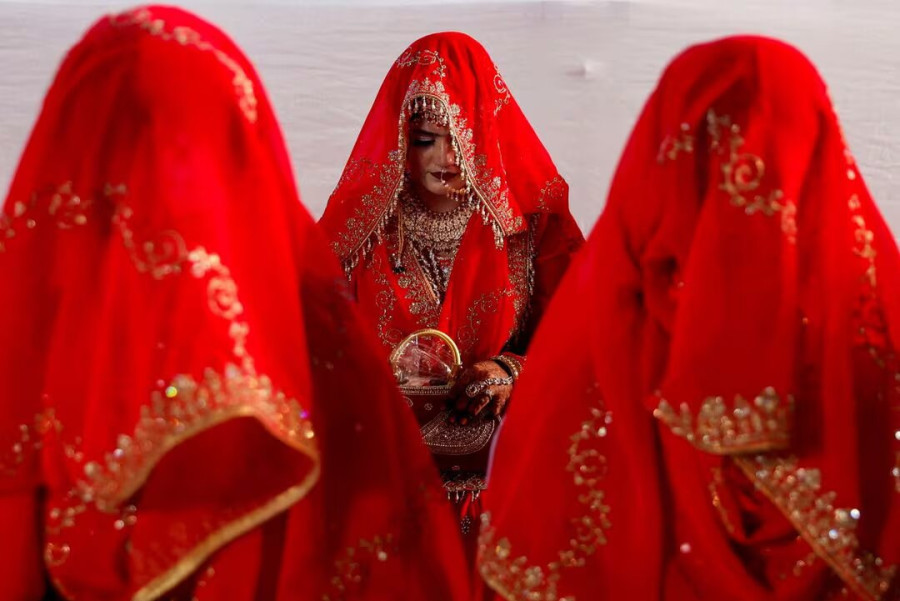Wed, Mar 4, 2026
Editorial
No to polygamy
The proposed laws seem to align with the patriarchal narrative of ‘men will be men’.
bookmark
Published at : August 4, 2025
Updated at : August 5, 2025 07:00
News on two proposed laws about marriage in Nepal are currently doing the rounds on social media. At the centre of these online discussions are women. The government has initiated a process to revise existing laws to lower the minimum marriage age from 20 years to 18 years, which is something also recommended by the United Nations Committee on the Elimination of Discrimination against Women (CEDAW). Plus, the Cabinet is drafting a bill to legalise polygamy by compelling a married man to marry for a second time if he is found to have had an extramarital affair resulting in the birth of an illegitimate child.
Women have started protesting against both the proposed laws—and rightly so— from the floor of the House of Representatives (HoR), to the streets of the capital to opinion pages of newspapers. Women lawmakers, from the ruling coalition as well as the opposition, voiced their objection to the polygamy-enabling draft during a meeting of the HoR on Monday. Activist Binu Yadav, who has been advocating against domestic violence targeted at women, has started a fresh fast-until-death demanding that the government repeal the provision enabling polygamy in the draft of the bill to amend the Criminal Code.
The proposed provision to legalise polygamy would legally recognise children born out of extramarital affairs. But it seems that such a provision is not targeted at reducing extramarital affairs, but enabling them by legalising those affairs. If the illegitimate status of children born out of such relationships were a concern, the government could have, as an alternative, legally recognised such children or forced men to divorce their partner if they were found indulging in an extramarital affair. Instead, men now have more freedom to frolic around and face no legal reprimand for not honouring the institution of marriage. The proposed laws, then, seem to align with the patriarchal narrative of ‘men will be men’, whereby men are not held to account for their behaviour.
There is no silver lining to these recently proposed laws. Both of them are regressive for women, especially the one legalising polygamy. It is unjust on married women to suddenly have to share her husband with another woman as the husband was not satisfied with the marriage. The opinion of women, the social group most impacted by the proposed laws, has been discarded. If the views of the women lawmakers of the ruling coalition were not considered before the laws were drafted, the voice of the common women of the country was surely neither prioritised nor accommodated in the controversial provisions in the proposed bills. This smells of toxic patriarchy.
This brings us to the main question: What is the purpose behind these marriage-related proposals? The government must take the perspective of women into account if it wants to revise the marriage laws. Legalising polygamy is not the way forward. There are alternatives to address the issues of the legal illegitimacy of children born out of extramarital affairs. Married women are already subjected to multiple unfair practices stemming from marriage, from the compulsion to quit their careers to take care of the family, to domestic abuse. The government should not heap more misery on them by pushing the proposed revisions to marriage laws.
Most Read from Editorial
Editor's Picks
Can Gagan Thapa convince Nepal that experience still matters?
How Facebook’s algorithm is amplifying one party over all others
Five and half decades of KP Oli in Nepali politics
Nepal’s IT exports near $1 billion. Can the momentum be sustained?
Parties’ lofty pledges on economy collide with hard realities
E-PAPER | March 04, 2026
×




 23.27°C Kathmandu
23.27°C Kathmandu














